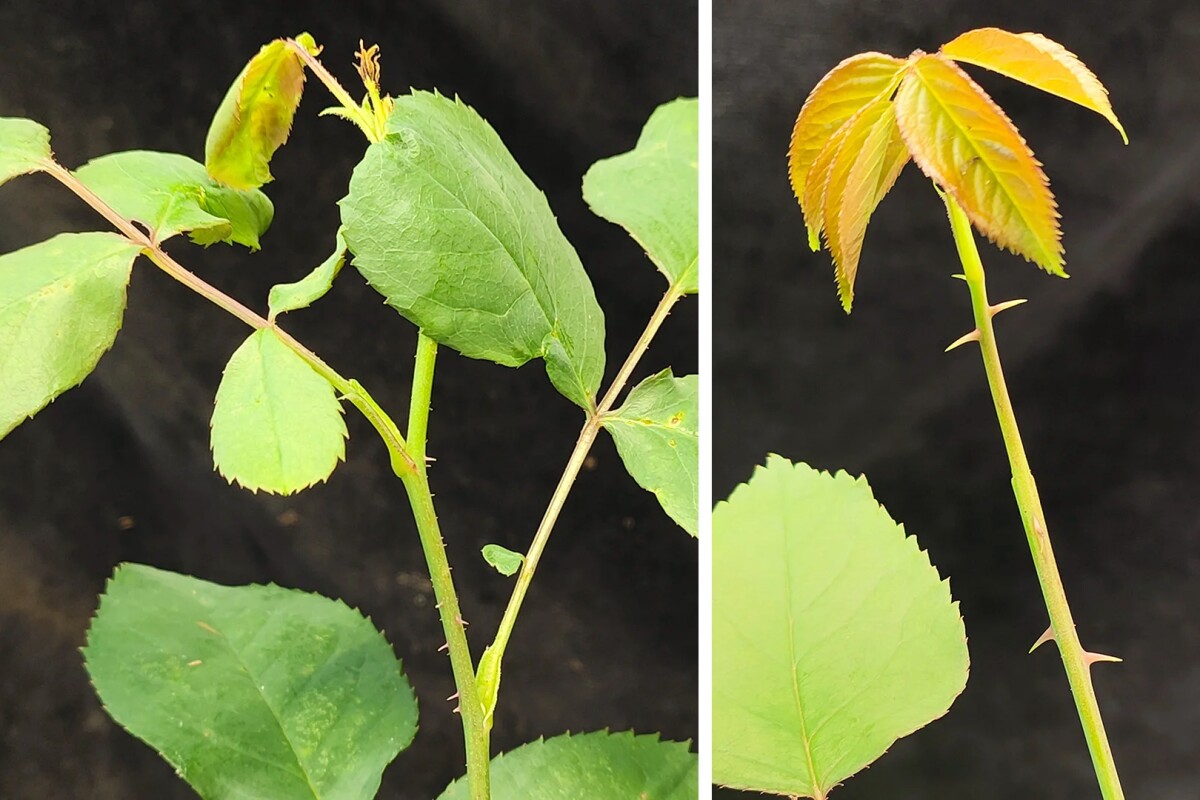Thornless Roses from Genetic Modifications Lead to Better Crops

Mohammed Bendahmane/INRAE, CNRS, Université de Lyon, France
Everyone adores roses, but they’d be even more enjoyable without their sharp thorns. Scientists have now developed a way to grow thornless roses, which could simplify crop harvesting.
It’s worth noting that some rose varieties are naturally thornless.
However, most plants don’t fall into this category. Many crop plants, like blackberries and eggplants, along with some varieties of tomatoes, potatoes, and rice, have herbivore-repelling thorns, called “prickles,” which make fruit harvesting difficult and time-consuming.
Scientists Investigate Eggplants and Discover Gene Mutations That Stop Prickle Production
To address this, scientists from Cold Spring Harbor Laboratory in New York and Universitat Politècnica de València in Spain began by studying eggplants. Led by Prof. Zachary Lippman and postdoc James Satterlee, they found that certain mutations in a gene called LOG (LOnely Guy) prevented the plants from producing prickles.
LOG was already known to aid in the synthesis of certain plant hormones. Curious if it might also influence prickle production in other plants, the scientists collaborated with colleagues in France, Canada, Germany, and the UK.
Their research, which included reviewing past studies and conducting new experiments, showed that LOG was linked to prickle growth in about 20 species. This appeared to be a case of convergent evolution, as these plants were not closely related and evolved separately over millions of years.
CRISPR Technique Silences LOG Gene, Reducing Prickles in Roses and Desert Raisins
Using the CRISPR gene-editing technique to silence the LOG gene, a scientist from INRAE in France significantly reduced prickle growth in roses. Meanwhile, researchers at Cornell University eliminated prickles in the desert raisin, an Australian fruit plant.
Furthermore, silencing the gene didn’t seem to harm the plants.
“Removing prickles would make crop handling and harvesting easier, lower the risk of injury for agricultural workers, and decrease post-harvest damage caused by prickles,” explains Prof. Jaime Prohens from UPV. “Additionally, developing new prickless varieties could increase consumer acceptance and consumption. These are all significant benefits.”
Read the original article on: New Atlas
Read more:










